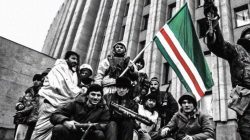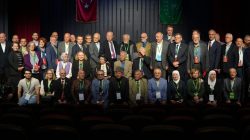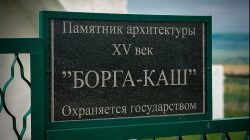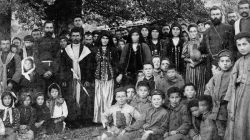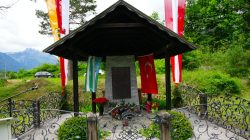
The Georgian troops of the Joint Peacekeeping Force that are currently deployed in the zone of conflict between Georgia and Ossetia attacked South Ossetia while both Russian and Ossetian peace forces remained unresponsive, said Andrey Bitarov, South Ossetian political scientist. Bitarov further said that the Georgians acted provocatively by resorting to an article of the 1994 treaty that stipulated that peace forces may not use violence against each other.
The people of Tskhinvali blame, to a certain degree, the nightly fires from Georgia on a lack of commitment by the troops of peace forces deployed in the buffer zone to supporting peace. How grounded do you think is this blame?
I don’t think that things are as easy as this. The 1994 treaty for the Joint Control Commission specifies that troops of the peace force are entitled to unconditional use of military force against instances of armed resistance that are completely out of the official control of both South Ossetia and Georgia, yet they are required to solve all kinds of armed conflicts. The armed forces tied to the Interior Ministry of Georgia have resisted since 2004 the presence of both Ossetian and Russian peace forces in the zone of conflict where the Georgian peace forces are just as entitled to be deployed. For instance, the Georgian peace forces tied to the Georgian Ministry of Defense and form the Battalion 11 of Division 1 opened fire to Tskhinvali on the night of June 14. It is obvious that the peace forces of Russia and South Ossetia were faced up with an anomaly: They are not entitled to use of force against the Georgian peace forces on the one hand; they are responsible for spreading the tension on the other. It is needless to say that Tbilisi, the administrative capital city of Georgia, plays a perfect game to set the tension high and then expects it to be responded to. The peace forces are well aware of this and can successfully refrain from giving easily in to provocation. There is, however, another thing to see as well: Tbilisi uses the Russian news media for accusing the Russian Peace Forces of remaining indifferent to the happenings, because it says that firing that was started by South Ossetia was not responded to by the Russian peace forces at all. Before we say something about how we can handle the nightly fires, we have to make it absolutely plain to ourselves that fires, protests, the killing of the civilian as well as security workers of South Ossetia, the economic embargo and the campaign of information are, as mentioned many times in the past, indications of the military activities that Georgia has aimed at South Ossetia since 2004. These activities are primarily aimed at continuing the efforts to force Ossetians in agony to leave South Ossetia. Tbilisi tries to make the Georgian population larger than, or at least equal to, the Ossetian one. (The Georgian population is exaggerated by the High Council of Election of Georgia to be 15 000, while it is estimated by the administration of South Ossetia not to be more than 8 000). In other words, Georgia keeps its genocidal policies going on.
One other thing is the attempt to damage the reputation of Russian Peace Forces for seemingly failing to keep the security regime in top shape. There is no doubt that Georgia has kept walking in the direction of using military force since 2004 as a way of solving the conflict. Instead of the principles of morality and law, Tbilisi chose the rule of maximizing its power in the zone of conflict to stick to so that it could systematize its pressure on the peace forces of both Russia and South Ossetia. Nobody in Tbilisi believes that Georgia can take back its control over South Ossetia unless it wages a new war that Georgia is certain to win. The only way left to follow is to avoid bloodshed, to escape the Georgian tension, and to restore the balance of power. Tskhinvali and peace forces should be able to respond to Tbilisi’s military preparation in the face of all agreements that Georgia violates in a similar manner not only in the field of military force but also in the fields of information and its foreign policy. In other words, if Georgia’s Interior Ministry sets up illegal police patrols and tries to fight a localized war by controlling the hills as well as roads that are already under control, the Russian peace forces should, in response, increase their presence in the Georgian side of the zone of conflict and put more emphasis on the war of information. The administration of South Ossetia should also be busy with the fortification as well as the engineering of its border with Georgia, dismiss as invalid the 2006 resolution to unilaterally decrease the number of its armed forces, and to increase it back to the level in the Spring of 2004; most importantly, South Ossetia should train its military forces to efficiently respond to fires and provocations. If the city comes under fire from Ergneti and Nikozi, the return fire should be aimed at wiping the two regions off the face of the earth. And .14-calibre weapons should be used in return fires so that both Georgian Ministries of Interior and Defense think more carefully next time they give order for acts of provocation to be started. It is also important to see at this point that the military spirit of Battalion 11 is not that strong. Battalion 1, however, vividly remembers its loses in 2004 and understands very well what South Ossetia means to it…
ÖZ/FT (Agency Caucasus)
Source: Osradio
Part I
[ssba]
